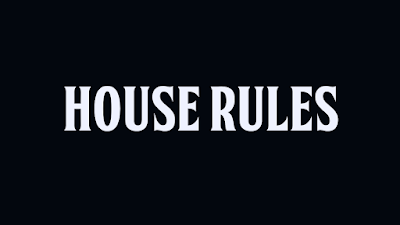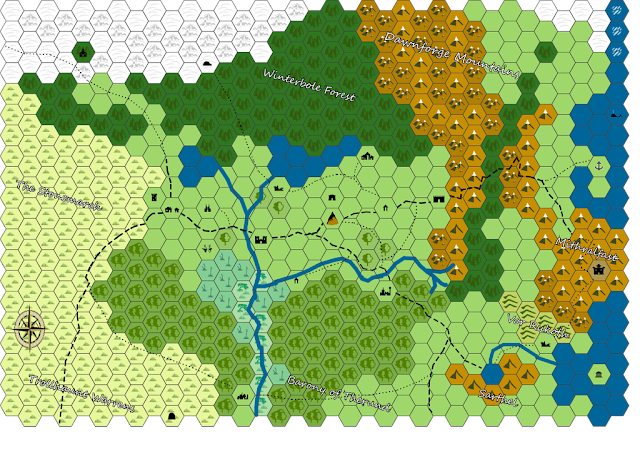Dnd 5e Implementing House Rules
"Don't let the rules rule you."
Last fall for whatever reason, I had begun my descent into the Greyhawk campaign setting After a few months of continuing interest and research, I discovered a local group was seeking players to add to their current campaign. I spoke with the DM and was at the cusp of joining until I was handed a one hundred and thirty page document of house rules. I was appalled to say the least. It was immense. I managed to get through the whole beast over the course of a few days, and it was not the reason I did not join the campaign, but wow. (They were expecting 6-8 hour sessions every few weeks and I could not justify being away from my family for that length of time on a consistent basis.)
That instance was an outlier in my overall experience with house rules, and I definitely do not sit in that camp at all. I am a pragmatist, and I approach my adjudication of rules in a very similar fashion.
A bit on advice,
You'll read a lot of advice on the internet and hear a lot of advices from fellow players and GMs. For me, I always preface any advice that I give with the notion that you are free to ignore it. I don't claim to be an expert on rules, mechanics, storytelling or writing, and therefore anything I can to assist can be ignored.
With that out the way, here is my advice for implementing house rules at your own table.
Questions to ask.
The following is how I approach implementing house rules in my games.
- Does the existing rule need to change?
- Will the complexity outweigh the benefit?
- Have I consulted my players about this adjustment and are they aware of it?
- Should I just use a different system?
I consider these questions whenever I am considering adding a house rule to a game, or making a change to an existed rule in the system.
Inherent in D&D 5th editions design is the concept of DM fiat, allowing the DM to have significant control over the rules and how their own game is run. It can be really freeing to not have to bend to the rules so often, but it can also be exhausting at times. However, the system does lend itself to the addition of house rules.
One such that I swear by is the Slow Natural Healing rule from the Dungeon Master's Guide. Normally, characters heal completely when they take a long rest, gaining all of their hit points back as well as half of their hit dice.
Essentially, a PC can get hit with a fireball, cut with a greatsword, and thrown off a cliff and after 8 hours of rest, be totally fine. No soreness or remaining injury.
I understand those wound mechanics are prevalent in other RPGs and I will touch on that subject later. However, it still bothers me to no end how the baseline rule functions in some cases.
"Does the existing rule need to change?" involves having an understanding of the story you are trying to tell. Slow Natural Healing changes the standard rule to simply make PCs roll hit dice during a long rest to heal, instead of just getting put back to full.
This creates the situation where a PC will be slightly worn down the following day, having less hit dice to spend on short rests and requiring a bit more caution when adventuring. In my Curse of Strahd campaign, this rule change made for some interesting situations and decisions. I felt that it made sense in a dangerous land of monsters and vampires, where the setting was a bit more dark and gritty. This rule adjustment would also be applicable in a hex-crawl or wilderness campaign where travel is dangerous as is fighting monsters.
I wouldn't make this change in a more casual game, or a more episodic adventure where there are larger spans of downtime between the action.
"Will the complexity outweigh the benefit?"
Continuing with this example, I argue that the complexity does not and did not outweigh the narrative benefit. It functioned mechanically as a short rest that lasted 8 hours, where the PCs received half their hit dice back at the end of the rest. I will admit it was a bit of a pain to track in D&D beyond for some of the players, but other than that it was relatively simple. You don't want a house rule to pause your game significantly and ruin the flow, or cause your players to be constantly asking for it to be reviewed in play, that is a signal that it is too complex.
"Have I consulted my players about this adjustment and are they aware of it?"
In most campaigns that I run nowadays (and the ones I only prep for an never run) I will always write up a player's guide for the campaign, inspired by Paizo's well designed guides, if a bit lighter. Here is the guide I gave my players for Curse of Strahd last year.
Therein, I have clearly stated the house rule and how it would operate in play. It did not come as a surprise and I always welcome my players to object to any house rules that I implement. Make sure that something like this or harsher does not come at a shock to someone in your game.
The Ultimate Question
Whenever I come across another DM putting a ton of house rules in their D&D game or asking "How can I make X thing in D&D?" I will always shout to the heavens "Find the system to match your game!" Despite popular believe, it is exceedingly challenging to get a square peg to fit into a very small round hole.
"Should I just use a different system?"
Choice of TTRPG system is something you should always consider. It can be a challenge to be aware of all the systems out there, but there is a multitude that may not be necessarily D&D or D&D adjacent, but they will fit the goal and theme of your game much better than forcing D&D to do the same.
D&D 5e, Pathfinder, and the like are "Heroic Fantasy", powerful heroes accomplishing big tasks. It is not meant to be a nitty gritty warfare combat simulator, or a heist game, or a game where you try to solve eldritch mysteries before losing your mind. It certainly can be those things, but it is much easier to find a game that will fit instead.
Heists, criminals, and rogues? Blades in the Dark.
Eldritch horror? Call of Cthulu.
Science fantasy? Starfinder.
Star Wars? Scum and Villainy.
Delving into a dark forest? Symbaroum.
There are so many awesome RPGs out there, and many indie ones. Check some of them out before forcing D&D to do your dark bidding.
All in all, the temptation to change an annoying rule can be strong. But resist, and consider before making that 130 page house rule document.




Comments
Post a Comment